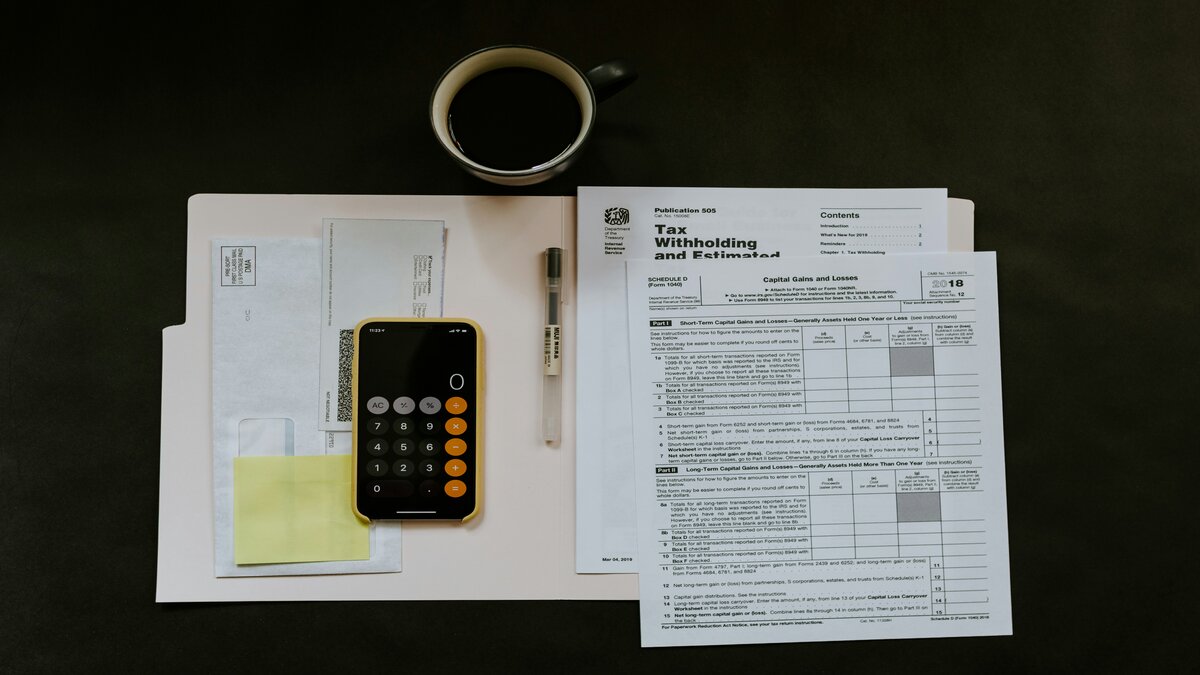A lot gets written on how the Australian taxation system treats property investors.
If you listen to the Left, Aussie landlords enjoy a litany of handouts that should be abolished, while many within the property industry argue that the tax code is, in fact, unfair to landlords.
If you're an investor though, your most pressing concern is probably what the tax law actually is rather than what it should be.
Here are the current rules regarding how tax deductions can work for investment property owners.
Rental property tax deductions
According to the ATO, landlords can only claim deductions on rental properties that are tenanted or 'genuinely available for rent'.
That means if you stay at your property for a couple of weeks while on holiday, you won't be able to claim any expenses for that period.
On top of this, if your property is empty and isn't advertised for rent, or if it's being advertised at an exorbitant rate compared to its market value, you also won't be able to claim any related deductions.
These deductions also only apply for the portion of the expense used to generate income, which you'll need to substantiate.
For example, you might rent out a room in your home and, simultaneously, have had the entire house painted. You would only be able to claim the cost of painting the tenanted room, not the entire job.
The ATO lists a wide range of expenses that are tax deductible. Some can be written off right away, while others are claimed over time.
Negative gearing
Australia allows negative gearing, which means if your rental property operates at a loss, you can deduct that loss from your other taxable income.
All of the below eligible deductions can be subtracted from the rental income you earn from your investment property, which is of course taxable.
If the property earns more than you spend on it, the property is 'positively geared' and you'll need to pay tax on the difference. When it's negatively geared though, you can subtract this loss from your other taxable income and reduce your income tax expense.
Much of the political discussion on investment property tax deductions centres around negative gearing.
Many countries, including the UK, Germany, and Japan, don't allow negative gearing to the same extent as Australia does. In the UK for example, investors typically receive a tax credit worth just 20% of the interest expense brought by their investment loan.
Read more: The benefits of negative gearing
Buying an investment property? The table below features investment home loans with some of the lowest interest rates on the market.
| Lender | Home Loan | Interest Rate | Comparison Rate* | Monthly Repayment | Repayment type | Rate Type | Offset | Redraw | Ongoing Fees | Upfront Fees | Max LVR | Lump Sum Repayment | Extra Repayments | Split Loan Option | Tags | Features | Link | Compare | Promoted Product | Disclosure |
|---|---|---|---|---|---|---|---|---|---|---|---|---|---|---|---|---|---|---|---|---|
5.59% p.a. | 5.63% p.a. | $2,867 | Principal & Interest | Variable | $0 | $530 | 90% |
| Promoted | Disclosure | ||||||||||
5.34% p.a. | 5.25% p.a. | $2,789 | Principal & Interest | Variable | $0 | $0 | 80% |
| Disclosure |
What expenses can I claim on tax right away?
Smaller, day-to-day expenses related to an investment property can generally be deducted in the tax year in which they occur.
Operating expenses
There are a variety of operating expenses you might incur while running your investment property that can be tax deductible. These can include:
-
Advertising
If you are looking for tenants, you'll probably need a listing somewhere. The cost of advertising your property as available for rent is generally deductible. -
Property management expenses
The costs of employing a property manager to take care of the property are tax deductible. -
Body corporate fees and charges
-
Council rates
-
Maintenance and repairs
As above, the costs of repairing or maintaining your rental property (or the portion of a property that is tenanted) are deductible. However, renovations and structural improvements must be claimed over time through depreciation, which we'll get to. -
Pest control
-
Legal expenses
If you run into legal issues that relate to your property, you may be able to claim your legal expenses. -
Insurance
Landlord insurance is generally tax deductible. -
Depreciating assets worth less than $300
Interest
As per Australia's negative gearing policy, interest expenses are deductible in full in the year you incur them.
Though, a person taking out an investment home loan to purchase an investment property can only deduct the interest portion of their mortgage repayments, not the principal.
Other borrowing costs (if under $100)
Beyond interest, many other borrowing costs related to your investment home loan are also tax deductible.
When the total borrowing costs - such as establishment fees or valuation fees - are less than $100, you can claim them immediately.
What rental property expenses can I claim over time?
The ATO also lists several expenses property investors need to claim over time, with a portion deducted each year for a certain number of years.
These claims can only be made for periods in which the property is tenanted or 'genuinely available' to rent.
If a property is only available for half of a given year, for example, you can only claim 50% of the deduction you could have claimed if it had been tenanted all year round.
Depreciating assets
If your rental property has fixtures or fittings worth over $300, the depreciation of these assets can be claimed over the course of its 'useful life'.
Per the ATO, a depreciating asset is one with a limited effective life which can reasonably be expected to decline in value over the time it is used. The cost of such assets are usually claimed over several years, in line with their effective life.
For example, the ATO currently list the effective life of a dishwasher as eight years. If you were to buy a $1,600 dishwasher for your investment property, you could deduct $200 each year as depreciation.
Renovations and structural improvements
You can claim capital works deductions for the costs of structural improvements done to your rental property. These include major renovations and building extensions.
Capital works are generally deducted at a rate of either 2.5% per year (spread over 40 years) or 4% per year (spread over 25 years).
Total capital works deductions cannot exceed the construction costs and claims cannot be made until the construction has been completed.
Deductions can also only be claimed for periods that a property is rented or genuinely available for rent.
As well as the cost of construction, deductions can also be made for:
-
Architect fees
-
Engineering fees
-
Excavation expenses
-
The cost of building permits
Construction costs
Even if you buy a property as is, you should still be able to claim depreciation on the structure of the building as a capital works deduction, providing it was built after 17 July 1985.
How much you might be able to claim can be complicated to work out, so it's probably worth enlisting a quantity surveyor who can write you up a depreciation schedule.
To claim depreciation on the structure of a building constructed prior to you buying it, you'll usually need details on when the property was built, as well as the company or individual that built it
Borrowing costs over $100 (excluding interest)
Borrowing costs of over $100 are claimed over five years or the loan term, whichever is shorter.
If you have to pay stamp duty on the mortgage, Lenders Mortgage Insurance (LMI), and a loan establishment fee on your investment loan, totalling $4,000, for example, you could likely claim roughly $800 annually for the next five years.
Borrowing expenses can also include:
-
Mortgage broker fees
-
Solicitor fees
-
Valuation costs
Non-tax-deductible rental property expenses
While there are a wide range of possible tax deductions related to investment properties, you'll need to be careful not to get caught trying to claim something illegitimately.
These are a few examples of rental property expenses that are non-deductible.
-
Travel to and from the property
Just like you can't claim the cost of getting to and from your regular job, you can't claim transport costs travelling to your rental property. -
Expenses that arise from your personal use of the property
-
The portion of repayments that goes towards paying down the principal balance of a home loan
Image by Kelly Sikkema on Unsplash
First published in August 2025
Collections: Property Investment






Share